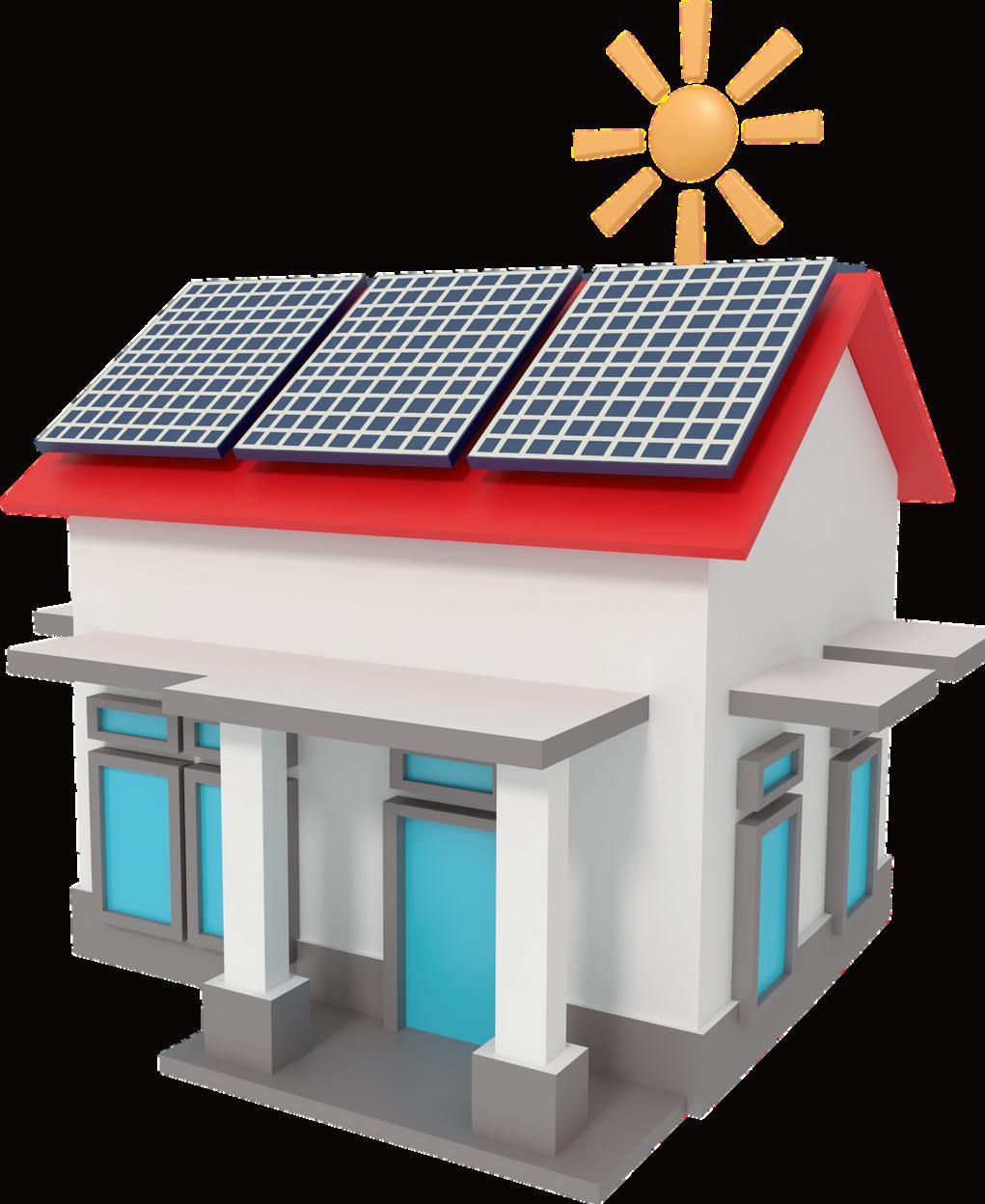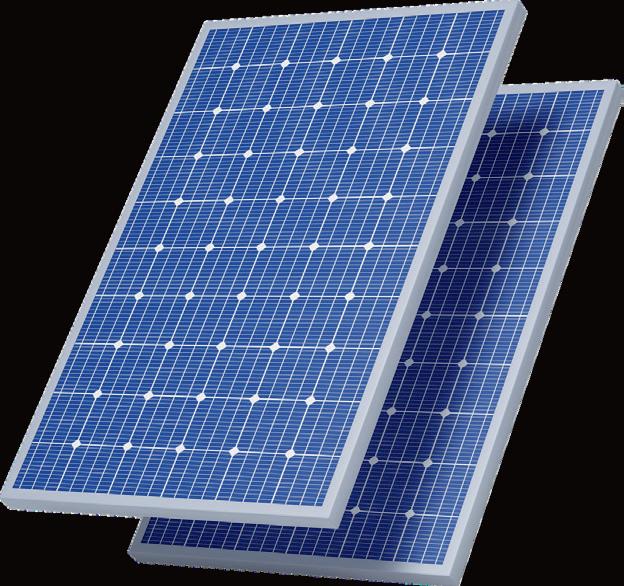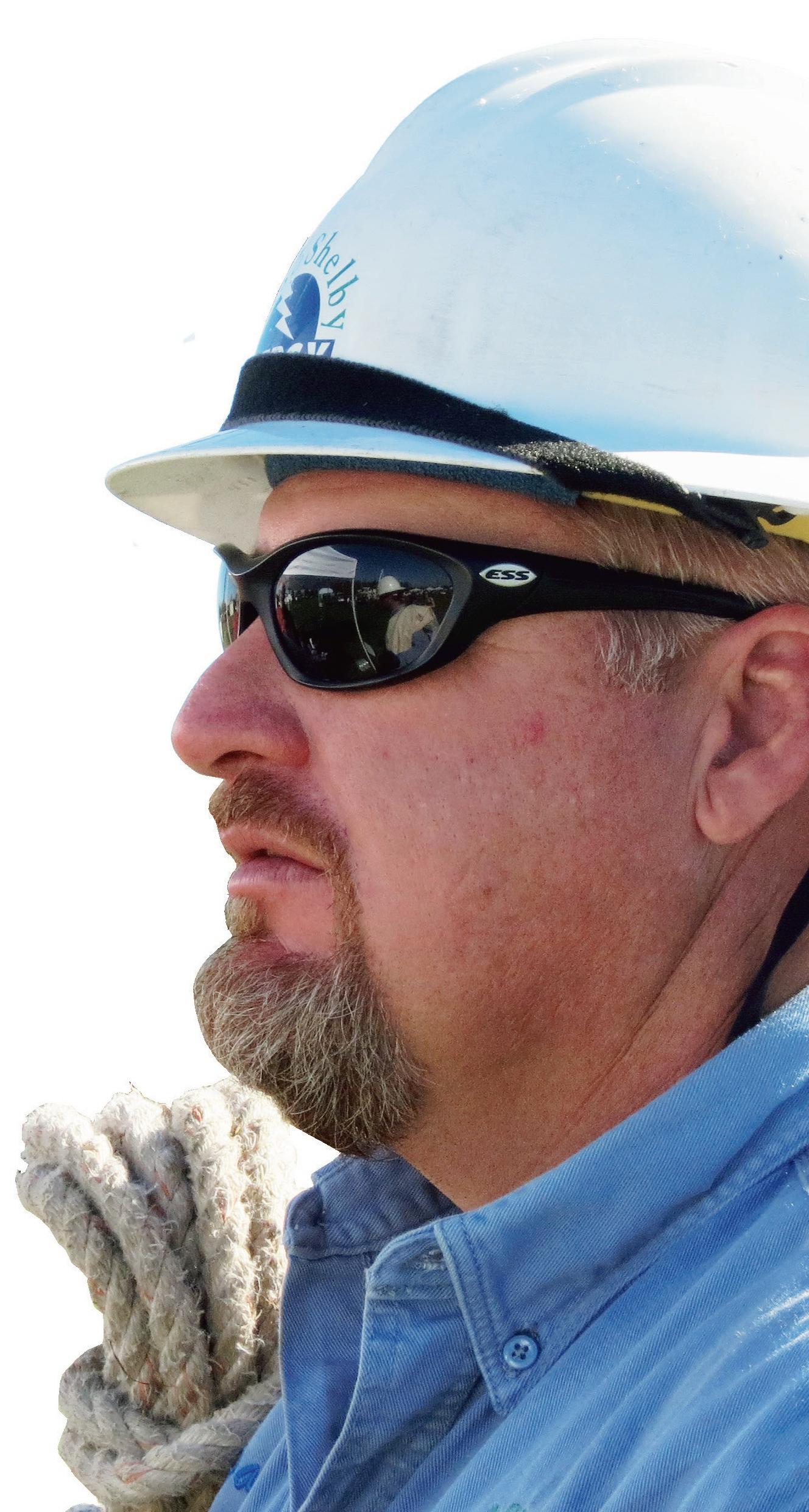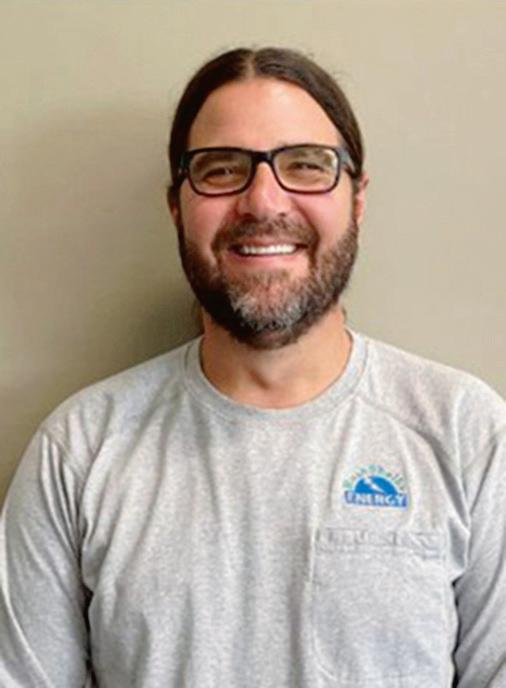




Completing a thorough energy efficiency audit is an important first step when considering distributed generation (DG). By implementing energy efficiency measures before installing a distributed generation system you save money by reducing your overall energy consumption and reduce the size of the distributed generation system you'll need to meet your energy needs. Many energy efficiency projects have a quicker payback than certain DG installations.
If you are considering investing in a distributed generation system, talk to your electric cooperative before you begin. Also talk to credible, reputable and skilled professionals who are knowledgeable in distributed generation systems. They can direct you to additional resources that will help you understand the economics of a distributed generation system, including the type of renewable energy technology best for your property; and financing, potential incentives, and other requirements, such as insurance required. In addition to professionals, ask for the advice of others who have installed a DG system to learn what they like about their system or what they wished they would have done differently. Your cooperative representative, Janet Labrie, may know about systems installed in your area.
Your local not-for-profit energy provider can help you understand the rate structure your services fall under and the types of charges likely to be incurred, as well as how you may be compensated for the excess energy you do not use that is generated by your distributed generation system.
A thorough examination of your electricity needs will help you determine the size and type of system necessary for your home. Record how your energy use fluctuates throughout the day, both seasonally and over the year. Research when various distributed generation systems produce peak energy and compare that information to your current and expected energy use. You'll most likely still need power from a centralized energy grid. Distributed generation is intended for supplemental power to meet your own energy needs.
Financial incentives, such as the Investment Tax Credit (ITC), may be available to offset your investment costs. We encourage you to talk with a tax advisor and your perspective vendors to learn more. Incentives are often driven by laws or policies, expiration dates and can vary by type and size of system. The Database of State Incentives for Renewables & Efficiency (www.dsireusa.org) is one source of information on incentives and policies that support renewables and energy efficiency in the U.S.
Understand Responsibilities
Installing a distributed generation system requires that certain responsibilities be met by all parties involved with the process. For example, the owner of the distributed energy system is responsible for obtaining the proper equipment and ensuring that all requirements of the electric co-op interconnection agreement are met, including paying any necessary costs. Local and/or state officials are responsible for conducting safety inspections, but the owner of the distributed generation system must notify the local and state officials in order to set this in motion. Once all interconnection requirements are met, and the safety and integrity of the system meet all necessary criteria, then the cooperative is responsible for the final stages of interconnection. Ongoing maintenance and system repairs are the responsibility of the generation system owner.
Your electric cooperative provides electricity when your distributed generation system is not producing sufficient energy to meet your needs, which keeps member-owners connected to the grid. Because of this connection, distributed generation owners must work with their co-op to meet their requirements to keep the grid reliable and safe. All interconnection and safety requirements must be met prior to operating a distributed generation system in parallel with your co-op's electric distribution system. This is necessary to protect other memberowners, cooperative employees, public safety personnel and the general public from risks that could result from the improper installation of distributed generation.
It's important to find a reputable installer who will size the system properly and who will give you realistic expectations. Ask for references, check online consumer reviews and ask third-party input from credible resources. Refer to the North American Board of Certified Energy Practitioners (NABECEP) at NABCEP.org to to locate certified installers and practitioners in your area.
Retain all data that you gather as well as information that is provided by your electric cooperative, vendors and other credible third-party sources. If you proceed with a distributed generation system, you will want to track and compare actual system performance with expected performance based on vendor information.
• What is the total installation cost of the system? Make sure to get more than one quote.
• Do you propose a roof mount or ground mount system? What are the di erences in cost, maintenance, space, etc?
• How much would my monthly energy bills be a er installation?
• How long would my payback period be on my solar system? What are the key assumptions associated with my payback that may impact the result?
• How will solar a ect my homeowner insurance?
• If my energy use changes, will I be able to add more solar panels later?
• Will I need a new roof for any reason to install and utilize these solar panels i.e., weight?
• If these panels or the installation damage my property, who is responsible?
• In which country are the solar panels and inverters you are selling made?





• What kind of warranties do the solar panels and inverters have? When does equipment typically need replaced?
• How long will the installation take?
• When was your company established and how much solar has been installed to date?
• Does your company have professional liability insurance? Ask to see it.
• Are your solar installers North American Board of Certi ed Energy Practioners (NABCEP) Solar Photovoltaic (PV) Electric trained and certi ed?
• Do you have a licensed professional engineer and master electrician on sta to review and approve drawings, obtain permits and supervise electrical work? Will you handle that paperwork?
• Are you accredited with the Better Business Bureau? If so, what is your rating?
• Will you complete all paperwork associated with nancing, tax credits and/or grants? Does that cost extra?
• Do you work with any a iated companies or sub-contractors?
• Do you o er any warranties or guarantees on installation work?
Contact Janet Labrie with any questions :


My name is Dave Sheehan, and I'm one of 16 linemen at RushShelby Energy who work everyday in all weather conditions to make sure our community has the power to live their lives. I love my job. It's hard work, but it's very rewarding. I hope this will give you a better look into what we face and more importantly, why we do it.
A lot of people know linework is dangerous because we work near high-voltage electricity. Move just the wrong way or lose focus for a split second, and it could be deadly. You have to be aware of your surroundings and the safety of the person next to you. We o en work on energized power lines, and you can't always tell they are energized by just looking at them. You're working with an element of danger that requires concentration, and there is no margin for error. e environment compounds the pressure, because when you need power most is usually when the weather is worst. I'm o en working in storms with rain, wind, extreme heat and cold, in the dark, or on the side of the road next to fast-moving tra c. Yes, it's dangerous, but that's what we're trained to do.
Many may not realize it, but we undergo years of training before we can o cially be called a lineman. We typically start as a groundman, helping crews with tools and keeping job sites safe, then we transition to apprentice status, which typically spans four years. A er an apprenticeship, with 8,000 hours of training under our belts, we transition to journeyman lineman status - that's when we're considered o cially trained in our eld.
But the education is ongoing. Linemen continuously receive training to stay mindful of safety requirements and up to date on the latest equipment and procedures.
e daily expectations of a lineman are physically demanding, but you won't hear any of us complain about that. I know what I signed up for - loading heavy materials, climbing poles and in and out of buckets. A lot of times, we go places the trucks can't, so I might be hiking through the woods loaded down with 40 pounds of personal protective equipment. But that's the job. Most of us are just glad to be outside.
The Sacrifices
ere are some sacri ces to being a lineman. I'm o en rst on the scene of an emergency, seeing things that are devastating like car accidents, structure res and damage from severe storms. You don't know what type of situation you're going to face or when you're going to face it. We get calls all hours and in the middle of the night. I've missed a lot of family events, but my family is very supportive, and it pays o in the end. We make sure there is nothing standing in the way of helping our friends and neighbors get back to normal life.
One thing that makes this job worthwhile is the camaraderie. My co-op is my second family, and the line crews are a brotherhood. In this work, you have to depend on the person beside you in life-to-death circumstances. It's a culture of trust, teamwork and service. It's all about keeping the team beside you safe and the lights on for everybody else.
RSE and its employees are members of this community. We live in the same neighborhoods. We shop at the same stores. Our kids go to the same schools. If your lights are o , there is a good chance ours are o too. So, you can trust that we are doing our best to get the lights back on as quickly and safely as possibleso you can get back to normal life.
Dave Sheehan, Serviceman, has been with with RushShelby Energy for 33 years.

Being an electric cooperative member o ers a unique opportunity to be a part of the decision-making process. Because RSE is a cooperative, it is owned by its members. at means members are responsible for electing other members to take the leadership positions on the board of directors and help guide the cooperative.
Each year, RushShelby Energy holds an annual meeting and encourages members to attend and vote for the directors of their choice. Members interested in being a board candidate may have his or her name placed on the ballot by completing a petition. e petition must have 15 signatures from other RushShelby Energy members living anywhere on our service territory. If you picked up a petition from our o ce, remember it must be completed and returned by May 3, 2024.
RushShelby Energy will o er three ways for you to vote.
Voting by Mail - Members will receive paper ballots in the mail and then send the completed ballots back with the included envelope.
Online Voting - Each member can log into the online voting site hosted on a secure server using your account number.
On-Site Election - Just as in past years, member will be able to vote at the annual meeting.

In Shelby County: all of Hendricks, Jackson and Washington Townships. All territory in Bartholomew and Johnson counties.

In Shelby County: all of Hanover, Marion and Union Townships; the eastern portion of Van Buren Township from State Road 9 on the west to the township line on the east.

All territory in Franklin County.
Jill Koch - District 9
Your photo could be selected to be the cover of the 2025 RushShelby Energy Planner and win a $250 bill credit.
• Must be an RSE member
• e photo must be electrical-related
• Please make sure photos are a high resolution. Enter as many photos as you would like
• Send photos to crhoades@rse.coop
• Must be original work, taken by the entrant
• Deadline to enter is September 1, 2024


Warren Shuppert is celebrating 20 years of service this month. RushShelby Energy appreciates your hardwork and dedication to our membership.
A well-designed landscape can add beauty to your home and reduce home heating and cooling costs. Plant deciduous trees with high, spreading crowns to the south of your home to block sunlight to warm your home. Plant evergreen trees and shrubs with low crowns to block winter winds. Dense evergreen trees and shrubs planted to the north and northwest are the most common type of windbreak and can help lower energy used for home heating.

Dear Member of RushShelby Energy:
You are hereby noti ed that the annual meeting of the members of RushShelby Energy Rural Electric Cooperative, Incorporated, will be held at RushShelby Energy, 2777 South 840 West, Manilla, Indiana, on ursday, July 11, 2024.
e registration period shall begin when the doors open at 4 PM, EDST.
You are hereby advised that there are three directors to be elected on July 11, 2024. e term of each director shall be in accordance with RushShelby Energy bylaws. Districts open for election are 3, 6 and 9. Candidates submitting petitions to appear on the ballot are:
District 3 - Ann Sipes
District 6 - Robert Stroup
District 9 - Jill Koch
All members in good standing on the date of the meeting shall be entitled to vote for the district candidate.
Cooperatively yours,
Jill KochSecretary, Board of Directors
